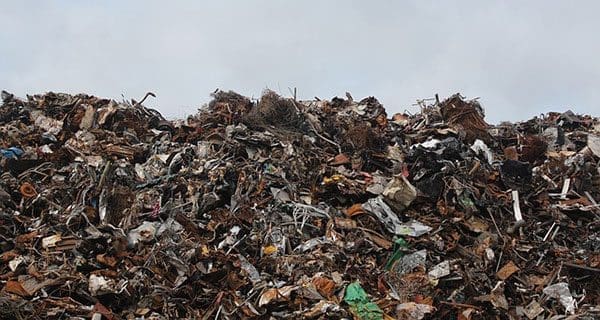 China has decided that what goes around doesn’t have to come around – at least not around there. As 2017 came to an end, China stopped importing most recyclables, putting Canadian recyclers in a bind.
China has decided that what goes around doesn’t have to come around – at least not around there. As 2017 came to an end, China stopped importing most recyclables, putting Canadian recyclers in a bind.
The Chinese decision also revealed weaknesses in the basic premise of recycling.
Many environmentalists regard recycling as imperative for the environment. They view miners and oil drillers as plunderers of the earth, and manufacturers as the planet’s poisoning polluters. They view the planet as precious and its resources as scarce.
Recycling seems like a neat solution – renewing materials without touching the earth, and inspiring everyone to be more earth-conscious and less driven to consume.
But then recycling hit a huge roadblock.
China announced the decision in July 2017. The campaign against “foreign garbage” includes plastic, textile and mixed paper.
Now recyclers all over the world are scrambling for new markets. The 28 European Union countries exported 87 percent of their recycled plastic to China. Japan, the United States, Australia and Canada were also largely reliant on China to accept their recyclables.
But China has enough garbage and recyclables of its own. Market economics and massive industrialization have created a growing, western-influenced middle class. More Chinese than ever have the power to buy, and throw out, more things.
Halifax used to send three-quarters of its recycling exports to China. While it has found new markets for hard plastics and papers, the city has nowhere to send film plastics. Three hundred tonnes of film plastics have been sent to the dump since August 2017.
Already, Calgary has amassed 5,000 tonnes of paper and plastic and the city has no solution.
Meanwhile, it’s business as usual for some Canadian recyclers. Why?
Because they represent another group often vilified by environmentalists: big business.
Recycle BC’s provincewide system takes in 185,000 tonnes annually. According to managing director Allen Langdon, “We have economies of scale that are greater than just individual municipalities.” Stringent sorting allows continued exports of quality plastics to China and a local processor has also been buying such plastics for three years.
Don’t mourn that Canadian landfills are receiving more trash because of China’s decision. Unless a buyer wants those materials for more of that hated consumerism, recyclables are just trash anyway.
As painful as it may be to admit, recycling only makes sense when it actually makes cents – or, better yet, dollars. It’s as much a business as anything else.
Lee Harding is a research associate with the Frontier Centre for Public Policy.
The views, opinions and positions expressed by columnists and contributors are the author’s alone. They do not inherently or expressly reflect the views, opinions and/or positions of our publication.


